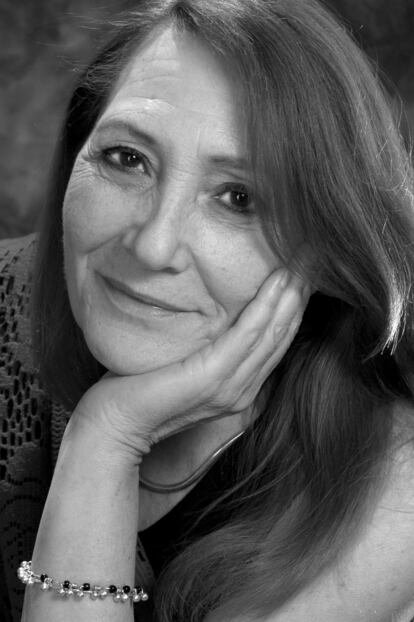Born in the popular Chinatown of Barcelona in 1945, the actress Maite Brik not only did not hide her origin, but she boasted about it, since from a young age she could see the coexistence between the working class and the social marginalized, and she was clear that this was a plus in your training as a person. It was when her name was María del Carmen García Matalonga. The performer died this Saturday at the age of 79 in Madrid.
Today the director and actor Mario Gas remembered how he met her when she was still called Maite Matalonga. It was before I became part of The fat bitch operaby Bertolt Brech that Loperena directed in 1965 at the Poliorama theater: “She was an excellent friend and a wonderful actress,” says Gas, who shared the stage with Brik on several occasions.
Her beginnings were very marked professionally by her long stay since the mid-sixties of the last century in the Núria Espert Company, where, logically, the leading role always fell to Espert, although that did not mean she stopped doing outstanding work in those that critics and audiences always noticed, given the excellence of his interpretation.
There went the Madwoman Barren by García Lorca, Simoniña in divine words of Valle Inclán and Solange in The Maids de Genet, all of them directed by Víctor García. But there were also many other jobs.
Núria Espert received the news of her death with great disappointment this morning: “Maite, Maite Brik, whom we were lucky enough to have in many of our shows…, leaves behind so many beautiful things that can be said about her character and her talent. She was always so happy and positive. She had a contagious laugh, I miss her already,” says the actress.
Professionally trained at the Royal School of Dramatic Art in Madrid, she also received teaching from José Luis Gómez, Carlos Gandolfo, Dominique de Faccio, Joan Strasberg and Concha Doñaque, among others, and in 1984 she created the Arte/Facto group together with Miguel Bilbatúa, with the one they produce Rebellion de Villiers D´Lisle Semiramis by Cristóbal de Virués.
He also created his own company in 1992, with which he tackled several productions, although the most significant work of his career was in 1995, Frida K., by Gloria Montero, directed by Peter Hinton, for which he won the Barcelona Critics’ Prize. He participated with it in several international festivals and kept it in his repertoire until the end of his professional career.
Awarded on several occasions, it is only necessary, to gauge the importance of Brik’s career, to make a succinct review of the directors with whom he worked and always with very important texts of classical and contemporary dramaturgy. Apart from Armando Moreno who was in charge of many productions of Espert’s company, the Catalan-Madrid actress worked in outstanding roles with great figures such as Joan Ollé, Jorge Lavelli, Miguel Narros, Víctor García, José Luis Alonso, Manuel Canseco ( with him he made the four works of the Theban cycle), Francisco Nieva, Lluís Pasqual, Vicente Sáinz de la Peña (known as The Duck), José Luis Gómez, Ventura Pons, Pierre Chabert (Samuel Beckett himself gave permission to his assistant to stage Nana for Brik), Angel Facio, Lluís Pascual, Pedro A. Osorio, Tamzin Townsend, Jesús Campos, Calixto Bieito, Joan Llaneras, Ramó Simó, José Luís Sáiz, Liuba Cid, Jaume Villanueva and its last director who was Marco Paiva.
Maite Brik’s colleagues and family, led by her son Marco O. Brik (as he has always signed), are watching over her in room 2 of the San Isidro Mortuary in Madrid, where she will leave this Sunday at 2:00 p.m. to be cremated. .

